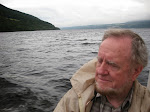Non-metropolitan Canada needs
proportional representation.
Maryam Monsef keeps saying a top concern is
for marginalized voters in rural and remote communities who do not feel
represented. Many would certainly not feel represented by their Conservative
MPs.
Canada has 33 metropolitan areas,
and 225 of Canada’s ridings are entirely or primarily in them. The other 113
are in non-metropolitan areas.
Unrepresented
voters in non-metropolitan areas
is
a big problem in the West.
Western 39 non-metropolitan ridings
In
the four western provinces, Liberal voters in the 39 non-metropolitan ridings
cast over 23% of the votes, but elected only one MP, and she barely counts as non-metropolitan. West
Vancouver—Sunshine Coast—Sea to Sky Country is only 55% outside the Vancouver metropolitan
area, and Pam Goldsmith-Jones was mayor of West Vancouver.
Conservative
voters in those 39 ridings cast 50.8% of the votes, yet elected 74% of those MPs,
29 of the 39. As for NDP voters, with only 20% of the vote concentrated in
their strongholds, they elected nine of those 39.
Any
decent regional proportional system would have let those Liberal voters elect
nine or ten MPs like Prince George’s Tracy Calogheros, former Penticton school
board chair Connie Denesiuk, Parksville councillor Carrie Powell-Davidson,
Fort McMurray Métis leader Kyle Harrietha, Red Deer’s Chandra
Kastern, Mike Pyne from Lethbridge, indigenous leader Lawrence Joseph from
Prince Albert, former Saskatchewan Wheat Pool President Marvin Wiens,
Brandon lawyer Jodi Wyman, and Springfield agriculture expert Terry Hayward.
Ontario’s 25 non-metropolitan ridings
We
see the same problem in Ontario’s 25 non-metropolitan ridings, where Liberal
voters cast 38.6% of the votes, but elected only 7 of those MPs, 28%. A good
regional proportional system would have let them elect at least three more MPs,
such as Katie Omstead from Chatham—Kent, Owen Sound communications
consultant Kimberley Love, and Orillia’s former hospital CEO Liz Riley, or journalism professor Allan Thompson from Kincardine, Sarnia’s Dave McPhail, or aboriginal lawyer Trisha Cowie in Muskoka Lakes.
Footnote on stats: As of the 2011 census those 33 metropolitan areas contained
69.1% of Canadians. Those 225 ridings are 67.4% of the 334 ridings other than
the Territories and Labrador, or 66.6% of the full 338 ridings.

No comments:
Post a Comment